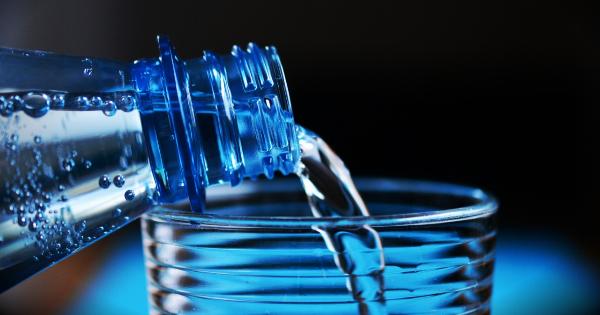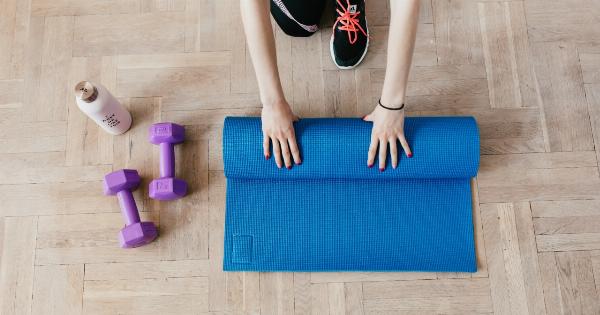Water is an essential component of life, and proper hydration is crucial for maintaining our overall health and well-being. Our bodies are composed of about 60% water, and every system in our body relies on it to function optimally.
Despite its importance, many people fail to consume enough water on a daily basis, leading to dehydration and various health issues.
But how do you know when your body needs more water? Is it possible to gauge your hydration levels without professional assistance? The answer is yes! By paying attention to certain signs and symptoms, you can become more aware of your body’s hydration needs and ensure you provide it with the necessary water intake. Here are seven telltale signs that indicate your body needs more water:.
1. Frequent Thirst
One of the most obvious signs that your body needs more water is feeling constantly thirsty. Your body has a built-in mechanism to signal when it requires hydration, and that mechanism is thirst.
Feeling thirsty is an indication that you’re already slightly dehydrated, so it’s crucial to listen to your body’s signal and grab a glass of water.
2. Dark Urine
Monitoring the color of your urine can provide valuable insights into your hydration status. If you notice that your urine is consistently dark yellow or amber, it’s a sign that your body is dehydrated and needs more water.
Ideally, your urine should be pale yellow or straw-colored, indicating proper hydration levels.
3. Dry or Sticky Mouth
A dry or sticky feeling in your mouth is another indicator that your body needs more water. When you’re dehydrated, your saliva production may decrease, leaving your mouth feeling parched.
Inadequate water intake can also lead to bad breath due to reduced saliva’s antibacterial properties.
4. Fatigue and Lethargy
When your body lacks sufficient water, your energy levels can take a hit. Dehydration can cause fatigue and a general sense of lethargy.
If you find yourself lacking energy throughout the day, drinking a glass of water may help revitalize your body and mind.
5. Headache or Dizziness
Dehydration can often manifest in the form of headaches or dizziness. The brain is highly dependent on water, so when you’re dehydrated, it can temporarily shrink and pull away from the skull, leading to pain and discomfort.
Keeping yourself hydrated can alleviate or prevent such symptoms.
6. Dry Skin and Lips
Proper hydration is essential for maintaining healthy skin. When your body lacks water, your skin can become dry, tight, and prone to more pronounced signs of aging.
Additionally, dehydration can cause chapped lips, which can be easily resolved by increasing your water intake.
7. Muscle Cramps
Dehydration can contribute to muscle cramps and spasms. When you’re exercising or engaging in physically demanding activities, your body loses water through sweat.
Inadequate replenishment of fluids can lead to imbalances in electrolytes, resulting in cramping. Ensuring you’re properly hydrated before and after exercise can help minimize the occurrence of muscle cramps.
Now that you’re aware of these seven signs indicating your body needs more water, it’s important to take proactive steps to meet your hydration needs. Here are a few key tips to help you drink more water:.
1. Carry a Reusable Water Bottle
Having a reusable water bottle with you at all times serves as a constant reminder to drink more water. Opt for a BPA-free bottle that’s easy to carry, ensuring you have access to water wherever you go.
2. Flavor Your Water
If the taste of plain water doesn’t entice you, try adding slices of fruits like lemon, lime, or cucumber to infuse flavor. Alternatively, you could also opt for herbal teas or low-calorie flavored water options to make hydration more exciting.
3. Set Reminders
In our busy lives, it’s easy to forget to drink water. Set reminders on your phone or use apps that send notifications to encourage regular water intake throughout the day. This will help you establish a hydration routine.
4. Eat Hydrating Foods
Remember that hydration doesn’t just come from drinking water alone. Many fruits and vegetables have high water content and can contribute to your overall hydration levels.
Incorporate hydrating foods like watermelon, cucumber, oranges, and tomatoes into your diet.
5. Monitor Your Water Intake
It can be helpful to track your water intake to ensure you’re meeting your hydration goals. There are several apps available that allow you to record your daily water consumption and provide reminders to drink more water when needed.
6. Drink Water Before Meals
Make it a habit to drink a glass of water before each meal. Not only does this contribute to your daily water intake, but it can also help control your appetite and prevent overeating.
7. Listen to Your Body
Above all, listen to your body’s signals for thirst and pay attention to any signs of dehydration. Develop a close relationship with your body and understand its unique hydration needs.
By incorporating these tips into your daily routine and being attentive to your body’s hydration signals, you can ensure you’re giving your body the water it needs to function optimally.
Remember, proper hydration is key to maintaining your overall health and well-being.


























